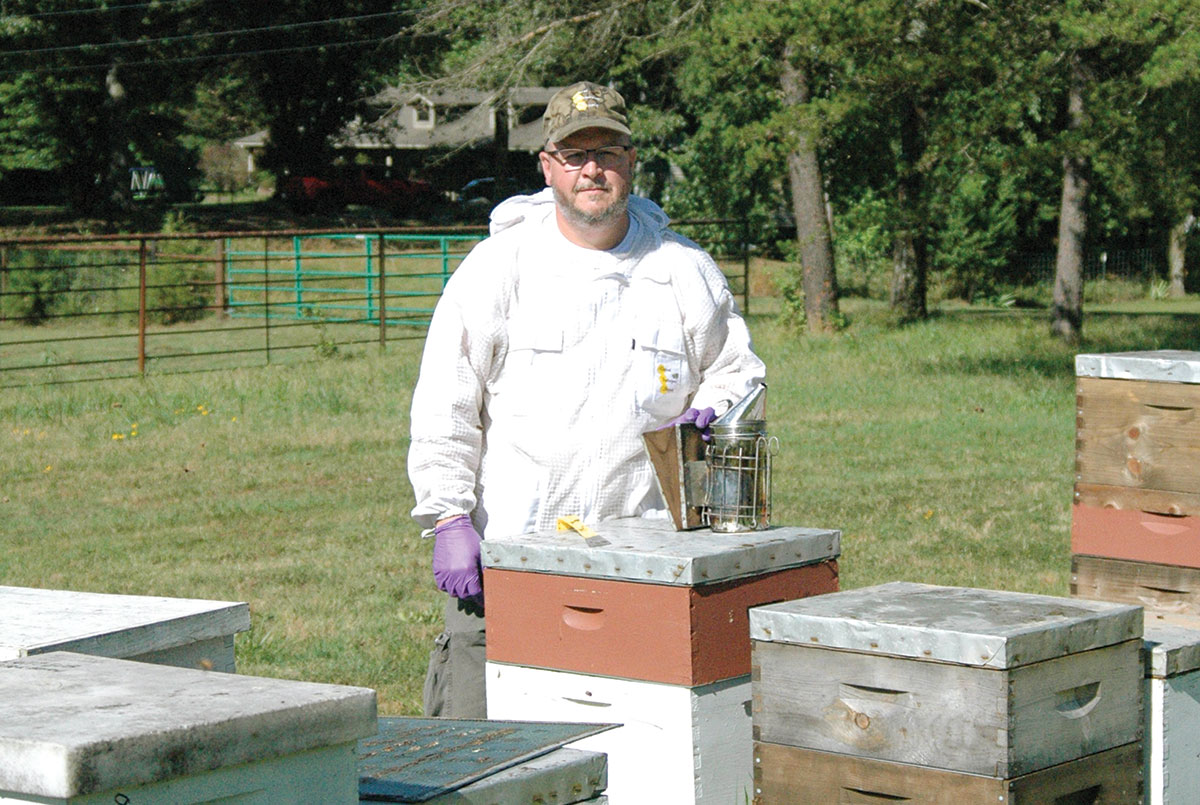
Billy Williams is the “Marlboro Man” of Vinita, Okla.
He is tall and slim with a big mustache, and unassuming manner. Billy was a horseman until six years ago when he agreed to be foreman for the then 400-acre Williford Steer Ranch.
“I figured if I could take care of horses, I could take care of cattle though learning cattle medicine and healthcare was more difficult than I had anticipated,” Billy said.
Owner Richard Williford from Tulsa, Okla., wanted to diversify his operation. Billy said, “We are trying to feed the world with the best cattle we can as efficiently and self-sufficiently as we can keeping everything as simple and natural as possible.”
The cattle ranch now has 1,600 acres with 400 to 500 head at a time, including 300 mamas and 150 to 175 calves a year. The cattle are divided into smaller herds, depending upon their intended market which limits sorting. Each year 50 yearling and 2-year-olds are sold for someone else to raise while one to two dozen calves are always kept in the Williford’s on-site feed yard and sold under the Williford Beef label to a few meat retailers and a larger number of individuals often purchasing the custom fed, aged beef by the quarter.
“I make sure these calves are fat all the way to their tails,” Billy said.
Registered Angus and registered Hereford herds are the heart of the operation and produce 15 breeding bull sales a year. The two commercial herds are Angus cross and F1 and F2. Billy has never sold a heifer and won’t breed one until she is 20 to 24 months old because he wants females that can breed and raise calves without supplementary grain. Heifers are also kept in a separate herd.
“When trying to develop and maintain a profitable operation, it’s easier to save money on a ranch than spending it because high overheads are difficult to overcome,” Billy explained. “The one thing you never shortchange is care, whether that care is for land or animals.”
Because Billy believes good cattle cannot be raised on poor land, land care comes first. Part of the process of saving land maintenance costs is soil testing and having custom-made fertilizer so the land gets exactly what it needs and nothing extra. Pastures are mostly fescue and Bermuda with naturally-occurring clover.
Another part of land care is brush hogging rather than spraying for weeds.
The land is divided into nine pastures which are used on a 60 to 75 day rotational grazing cycle according to the number of cattle in each herd, consumption, and the weather.
One of the pastures is a 200-acre field containing natural grasses including bluestem and yellow hoop. It is not fertilized but left totally natural for hay. This year’s total hay goal is 2,000 bales, some of which will be sold to augment profits.
The land contains pipe fences and corrals. Billy believes that the longevity of the sturdier material outweighs the initial higher cost.
Finally, while water comes from springs, a creek and ponds rebuilt in 2013, frost-free automatic waters provide the most efficient and reliable source.
Some cost-cutting measures also apply to the animals.
Even though calves are tagged, Billy waits to castrate purebred bulls until they are sorted for breeding or commercial markets and prefers castration because it is quick and more reliable. Billy also administers his own vaccines, both long-term and pour-on wormers and the occasionally needed medications.
“Because we try to stay ahead of the health issues, we have had very few problems,” Billy said. “Nonetheless, if something does come up, a really good vet named John Marcott has a clinic just down the road.”
Billy, who absolutely loves his life, quipped, “Money is not the only thing; a good lifestyle is also important. I get to work with my horses every day and wear the big hat.”
Billy also enjoys breeding a few brood mares each year and buys colts at the Cunningham Ranch in Rose, Okla.
“I let the colts grow up to be a cow and then train them to be horses,” he said.
Billy has one full-time employee, a 21-year-old ranch hand named Matt “Karl” Wilson.
They’re on horseback all morning with three Blue Heeler dogs in tow, checking each animal, usually twice a day, while afternoons are spent taking care of the land, maintaining equipment, building fences or whatever else needs to be done.
“Keeping good and meticulous records is absolutely necessary,” Billy said. “My records not only include detailed information about every animal so we know it’s individual and genetic history but also what I have done every afternoon since I started working here six years ago. The other necessity is having outstanding cattle with my word being even better than the cattle.”







